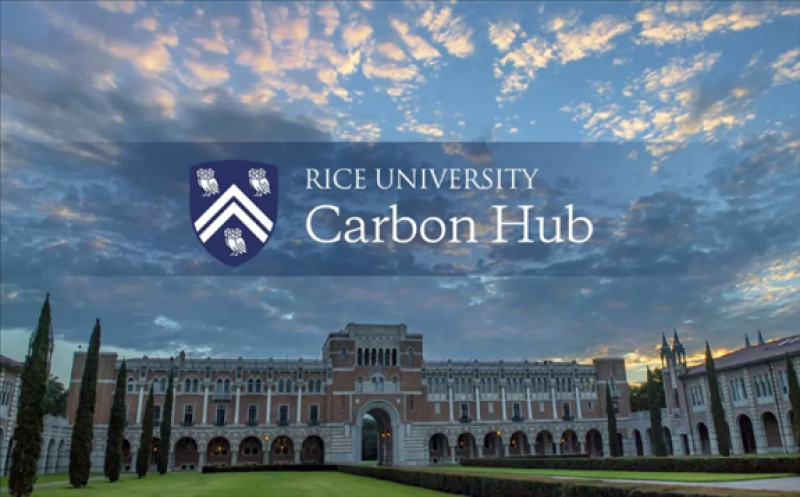 “Game-changing” idea: Splitting hydrocarbons to make hydrogen energy and valuable carbon materials
“Game-changing” idea: Splitting hydrocarbons to make hydrogen energy and valuable carbon materials
Inaugurated by Shell with a $10m commitment, the Carbon Hub initiative will split hydrocarbons to make clean-burning hydrogen fuel and solid carbon materials that can be used to make buildings, cars, clothing and more, instead of burning them as fuel and releasing carbon dioxide.
“Trying to address climate change is like playing whack-a-mole; you think you’re making something better, and you realise that made something else get worse,” said Carbon Hub Director Matteo Pasquali.
“For example, you make cars more fuel efficient by removing weight, and then realise you’ve increased CO2 emissions by using more aluminium and carbon fibres.”
“Or you try to fix CO2 into a useful product, and you realise you now need much more energy than you had gotten by making the CO2 in the first place.”
Carbon Hub’s solution? Make solid and useable carbon materials directly from hydrocarbons, so no emissions are ever generated.
“The beauty of it is that if you start from hydrocarbons and run efficient processes, you will have leftover hydrogen to make clean, zero emissions energy,” Pasquali said.
“No single approach to climate change addresses as many issues as the Carbon Hub.”
Sharon Beshouri, President of Shell Global Solutions, added, “The use of clean hydrogen and carbon materials has the potential to be game-changing in the energy transition.”
“Carbon Hub aligns with Shell’s vision to provide more and cleaner energy solutions around the world.”
Pasquali’s team looked for places to cut out energy inefficiencies without increasing emissions elsewhere.
The biggest impact on climate change, he said, will come from creating carbon materials that are lighter than metals but compete with them in terms of strength and electrical and thermal conductivity.
Thanks to nanotechnology, carbon can now take many forms, including nanotubes and graphene.
That versatility can support a diverse range of products from beams, panels and wiring for cars and buildings to soil amendments for farming.
“One potential use of solid carbon is as a soil additive, where properly engineered carbonaceous materials can improve crop yields and resilience to drought,” said Carbon Hub Researcher Carrie Masiello, Professor of Earth, Environmental and Planetary Sciences at Rice.
With the help of Shell and future industry partners, Carbon Hub will fund and direct $100m of basic science and engineering to efficiently deploy technologies, including several that have already been proven in the lab.